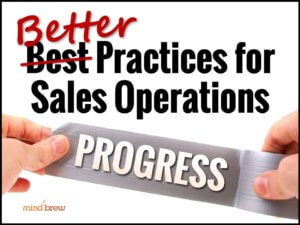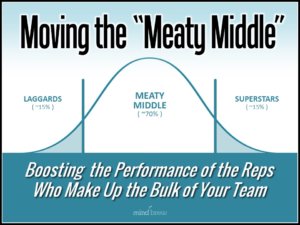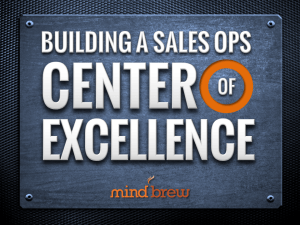Zen Buddhist teacher Shunryu Suzuki once said
Everything is perfect, and there is always room for improvement.
On the one hand, this statement makes no sense because it seems to be asserting two completely opposite things. But on the other hand, plenty of people seem to embrace its apparent contradictions.
You can certainly find this attitude on display in most sales organizations. If you ask your co-workers if they want to improve things, most of them will probably say yes enthusiastically.
But if you ask them if they are willing to make some changes, you’ll probably get a lot more pushback from people who think things are “perfect” the way they are now.
You can find outliers and anomalies, but most people are more open to the idea of improvement than to the idea of change. Many people find change to be unsettling. Maybe even downright scary. On the other hand, improvement makes them happy because it implies that things are going to get better.
The irony, of course, is that you can’t have improvement without also having change.
We’ve found that many Sales Ops professionals understand that improvement requires change. And many of us are within that smaller group of outliers and anomalies who don’t fear change. We’re eager to do things in new ways if we believe it will be a positive improvement for the organization.
Our challenge lies in getting the rest of the teams in the organization to come along with us on that journey. And unfortunately, it often isn’t easy.
Almost every Sales Ops project or initiative that you champion is going to require the organization to make some changes. The process of putting those changes into practice can be easier if you understand and use the principles of change management. If you haven’t watched it before, we recommend the Making Change Happen webinar. It introduces you to the basics of change management and offers a variety of helpful tips.
One of the most helpful change management tips is that small changes are easier to implement than big changes. That’s why we like to focus on best practices that offer the biggest amount of results for the least amount of change. We’ve even heard from some sales ops teams that they’ve implemented improvements and best practices without the sales team even noticing that something changed.
You can find some of these best practices that offer the biggest bang for the buck in the following resources:
- Delivering Answers to the Point of Sale
- Innovating to Maximize Sales Productivity
- “Better” Practices for Sales Operations
- Using a Cost-Plus Mindset to Your Advantage
- Moving the “Meaty Middle”
Suzuki also said
Without accepting the fact that everything changes, we cannot find perfect composure. But unfortunately, although it is true, it is difficult for us to accept it. Because we cannot accept the truth of transience, we suffer.
But when you implement change in the right way, you can minimize any suffering. Our hope is that we can help you make meaningful, necessary changes that can help your organization succeed without experiencing the suffering.

















